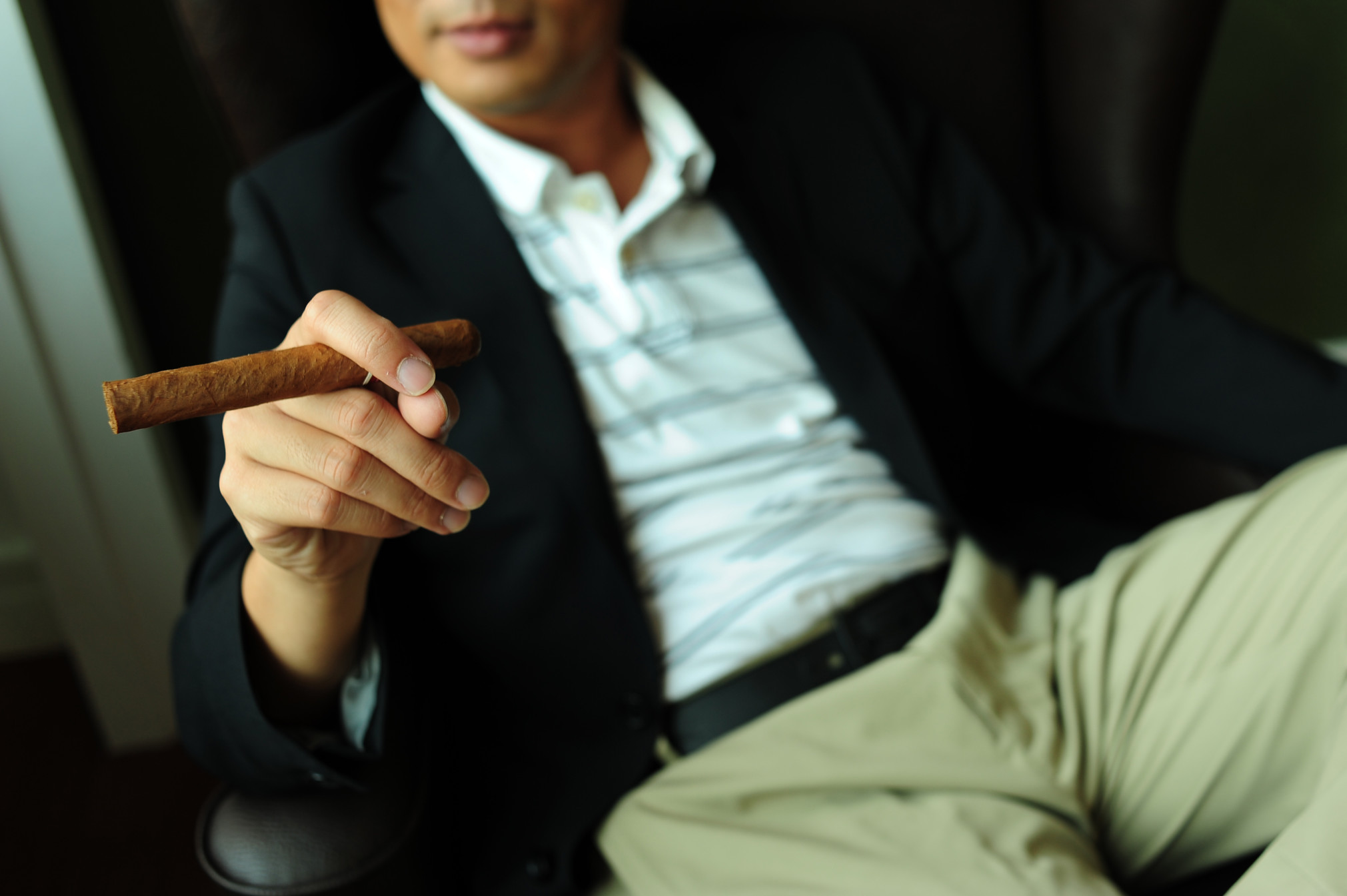The ultimate symbol of luxury and accomplishment for some remains an expensive cigar, smoked with like-minded peers in a sumptuous environment, perhaps accompanied by a fine glass of whisky. Whether or not this meets your definition of bliss, chances are that someone you know is either living that life or wishes they could. To understand the lure – and the vocabulary – of this classic luxury product, what do you need to know about cigars?
a meeting of the gentleman’s council
Recently, we were hanging out with some dapper gents over dinner, and the subject of cigars came up.
At the time, we knew next to nothing about them. We didn’t even know enough to know what we should know about cigars. It was a foreign country to us.
So, we took the opportunity to ask some basic questions about the product: its origin, some of the common norms and practices around smoking cigars, and some of the brand names that a luxury aficionado should know, just ‘cause.
With the holidays approaching, we also thought it would be a good idea to inquire about gifting cigars to someone on our list.
The Gentleman’s Council was keen to share their knowledge. What follows is their overview of what a reasonably intelligent person should know about cigars. Whether you’re planning on buying a box, gifting a box, or just chatting with someone who likes an occasional stogie, here’s your primer, straight from the experts.
foundation knowledge on cigar smoking
First things first. A true aficionado can smoke 3-4 cigars a day (and sometimes a great deal more). But for many, it’s a special occasion experience, shared with friends and family after an important meal or big event.
It sounds like a joke, but it’s true: when you smoke a cigar, you don’t inhale. So the health hazards are less than from cigarette smoking (but they’re not zero). Lots of professional athletes smoke cigars, so for what it’s worth the occasional stogie doesn’t seem to inhibit their lung capacity.
the 5 elements of a cigar
Among the key characteristics of any cigar are 5 elements: the length; the “ring gauge” (which is the width); the shape (some are tapered at the end like a torpedo, while others are perfectly cylindrical); the type of leaf used to wrap the tobacco; and the source of the tobacco itself.
Typically, consuming a cigar takes 40-45 minutes. In many cases, the last third of the cigar is of lesser quality because it can hold more tar – but the best ones smoke well all the way through. There are “short” versions that last for only about 15 minutes – this a good way to enjoy a very high-quality cigar at a more affordable price point.
think of cigars as being very similar to wine
The most important bit of advice for the cigar novice? “Cigars are a lot like wine, and if you think of them that way, it will all make a lot more sense.”
Thus spoke one of our thoughtful gentleman, and the rest of the group was in full agreement that the analogy is a good one. Here’s why:
1. Cigars benefit from aging.
A fine cigar matures like fine wine. A serious aficionado will have a good humidor, in which he or she might store cigars anywhere from 5-10 years.
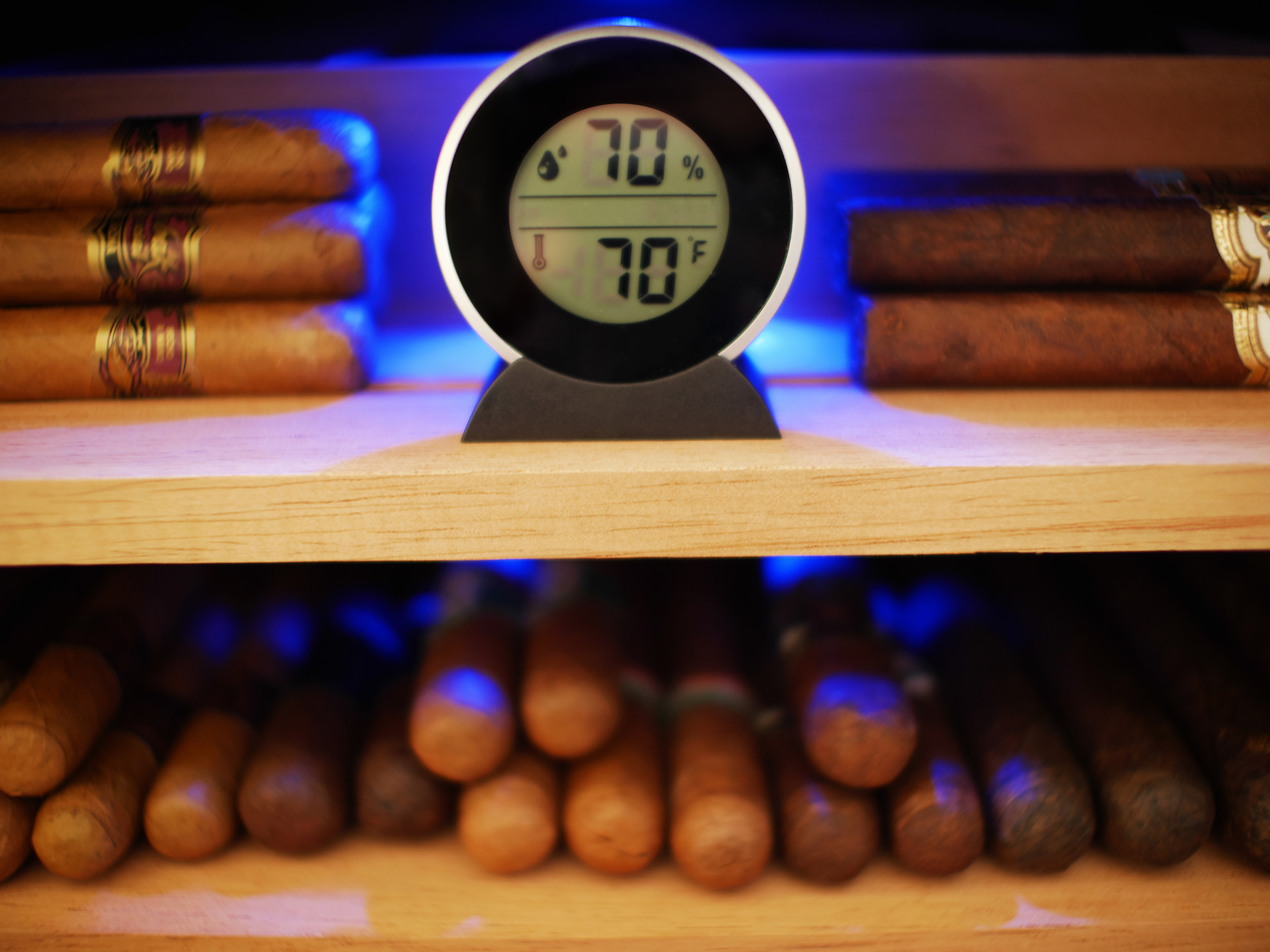
Cigar Humidor
2. Cigar flavors are varied.
Like wine, there’s a material difference between “light wrap” and “dark wrap.” The tobacco in cigars is wrapped in a leaf, and the choice of leaf makes the flavor profile quite different from light to dark. The vast majority of the leaves come from the same countries as the tobacco, but recently the state of Connecticut has become known as a source for cigar wrappers.
3. For a cigar, terrior matters.
The quality of the tobacco field, and the skill of those doing the picking and drying, have a significant impact on the quality of the final product.
4. The “France” or “Italy” of cigars is Cuba.
In terms of brand recognition and history, Cuban cigars are the epitome of luxury. The Cohiba brand is the one that Fidel Castro smoked, and as a result, it’s still the most expensive on the market. The Siglo 1 is a “short” version of a Cohiba, and a good way to experience the dream. As of this posting, the rule is that you cannot purchase Cuban cigars in America, but you can purchase them abroad and bring a small amount back into the US for your personal consumption. Our experts say that in addition to Cohiba, the other important cigar brands are Partagas, Montecristo, Romeo y Julieta and Trinidad.
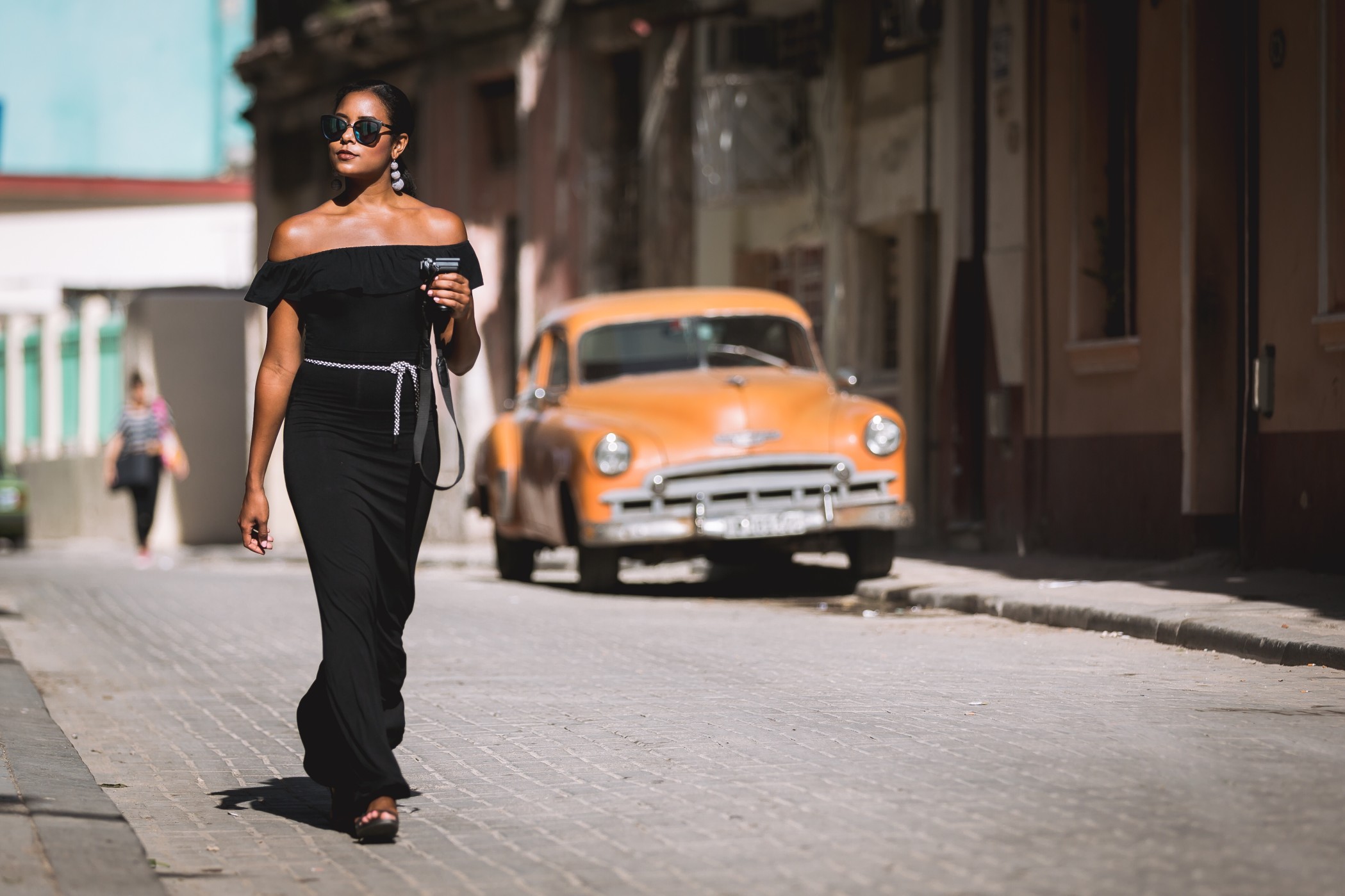
Havana, Cuba
5. For cigars, as with wine, there’s an emerging set of “New World” sources.
These emerging regions provide good quality and interesting profiles that would never have been on the map a few years ago. Specifically, the Dominican Republic, Ecuador, and Nicaragua are moving into the luxury cigar space as their capabilities improve. Our experts say that in terms of quality, some cigars sourced from these new locations are a much better value for the price than a Cuban cigar. Cohiba, one of the world’s revered cigar names, paradoxically exists in both Dominican and Cuban versions—neither of which has any relationship to the other. And although the merits of the two are often debated among cigar aficionados, when it comes to complexity and price, the new Dominican-made Cohiba Spectre may have trumped the Havana version. It’s priced at $90 a cigar—or $900 for a container of 10, and only 180 boxes are available worldwide.
6. As with some other luxury goods, like fragrance and beauty products, you can purchase “samplers” of cigars.
Samplers of expensive cigars are readily available for purchase either for yourself or as a gift. The samples might vary in size, wrap or tobacco origin, and this is a good way to try a few options and find what best suits you (or your gift recipient).
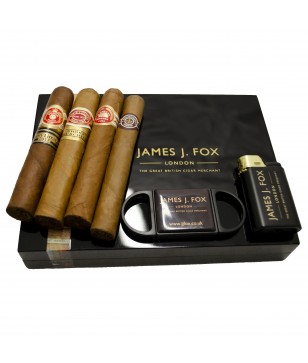
A cigar sampler from James J. Fox, London
7. Like wine, cigars pair well with other luxury products.
Whisky (Scotch or Japanese) was the consensus choice of our Gentleman’s Council, but they advised that red wine, port, mezcal and other after-dinner drinks are all fine accompaniments to a good cigar. Of course, the setting matters too: a luxury hotel, resort, restaurant or private club makes the experience of smoking a cigar just that much better.
8. There are cigar bars, just as there are wine bars.
In Western Europe and the US, you cannot smoke a cigar indoors in a hotel or restaurant. So you can opt for a terrace or other outdoor space. Or a cigar club or bar, like Club Macanudo in Manhattan. Some cigar bars are private, like the one atop 666 Fifth Avenue in New York, but most are open to all.
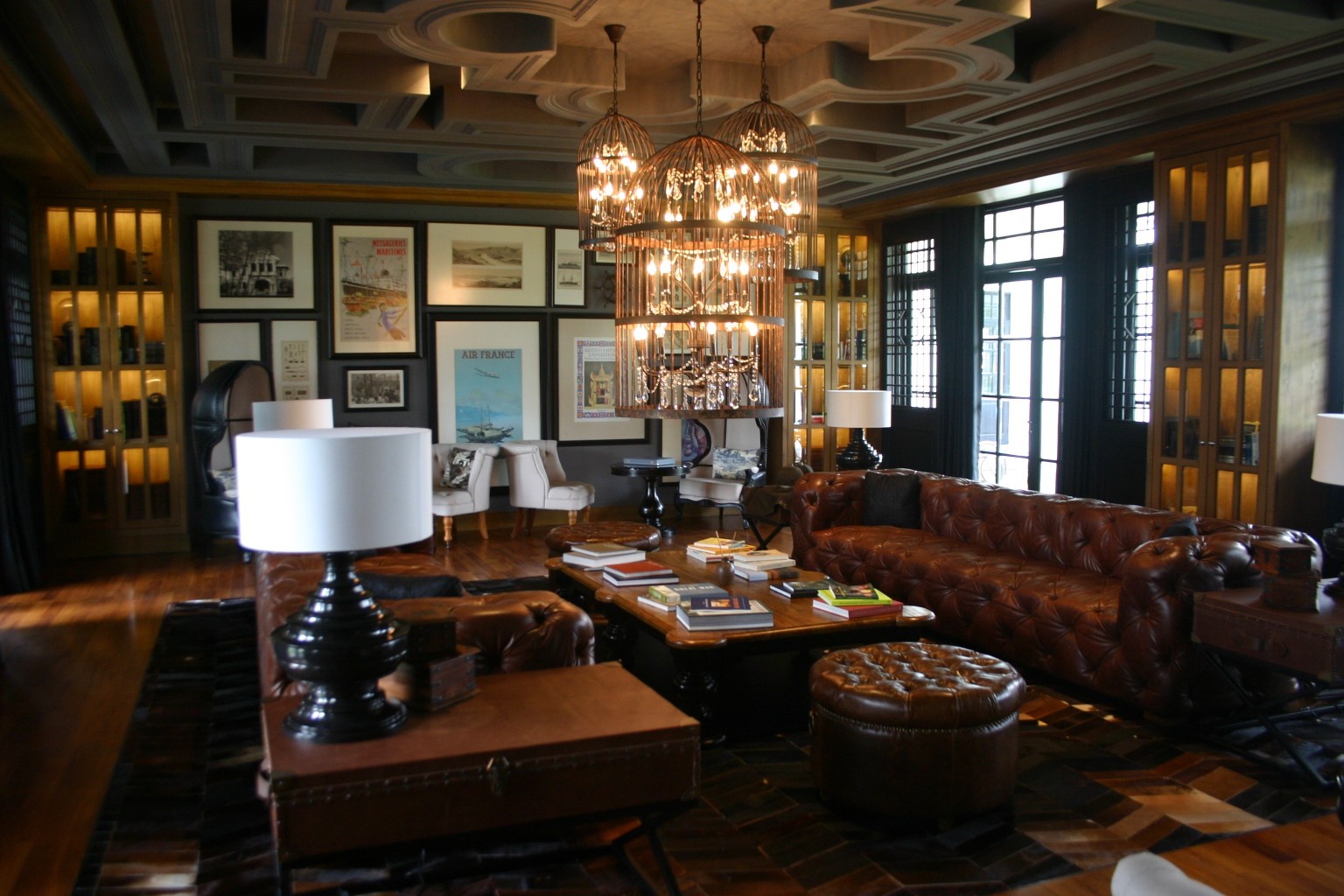
Cigar Lounge
9. If you want to give cigars as a gift, first do some research.
Specifically, our expert panel say that you should ask the executive assistant, spouse, partner or friend of your gift recipient what the person likes. It’s a more personal preference than you may realize, with more variables than one might expect, so its best to gather some intel before you buy. Because the cost is so high, you can gift a box of 5 rather than a box of 12, and no one will look askance. As long as they’re good ones.
10. Be mindful that cigar smoking has a rich history.
Winston Churchill and Jack Kennedy famously both smoked them. In fact, if you’re in London, you can visit James J. Fox in St. James, the store where Churchill purchased his cigars (you can sit in the very same chair that he did). For many people, cigars represent heritage, class, achievement, victory, and camaraderie. The shared activity of an after-dinner drink and a cigar is an ancient ritual, and for some a lovely way to wind down after a long day.
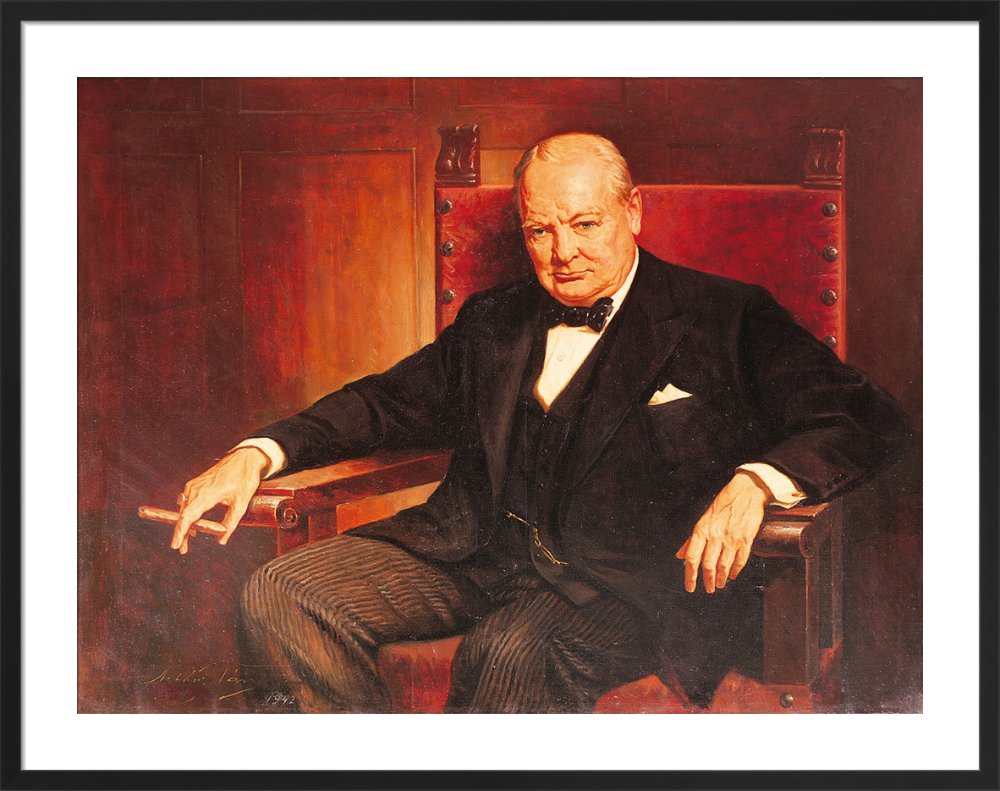
Sir Winston Churchill with Cigar
If you decide to take it up yourself, or to give a gift of cigars this holiday, realize that what you’re giving is this experience as much as anything else. Putting Freud to the side for the moment, it’s still actually true: for many people. a cigar is much more than just a cigar.
Come and join our community! For a weekly round-up of insider ideas and information on the world of luxury, sign up for our Dandelion Chandelier Sunday Read here. And see luxury in a new light.
And for a weekly dose of career insights and ideas, sign up for our newsletter, Power Up, here
Join our community
For access to insider ideas and information on the world of luxury, sign up for our Dandelion Chandelier newsletter. And see luxury in a new light.

